In Service of The King: 10 Years of finding midseason help for LeBron
It's been 10 seasons since LeBron James first made the NBA Finals, and in just about every year since, his teams have felt it incumbent upon them to reward his Herculean effort throughout the season by finding him a little help for the final push.
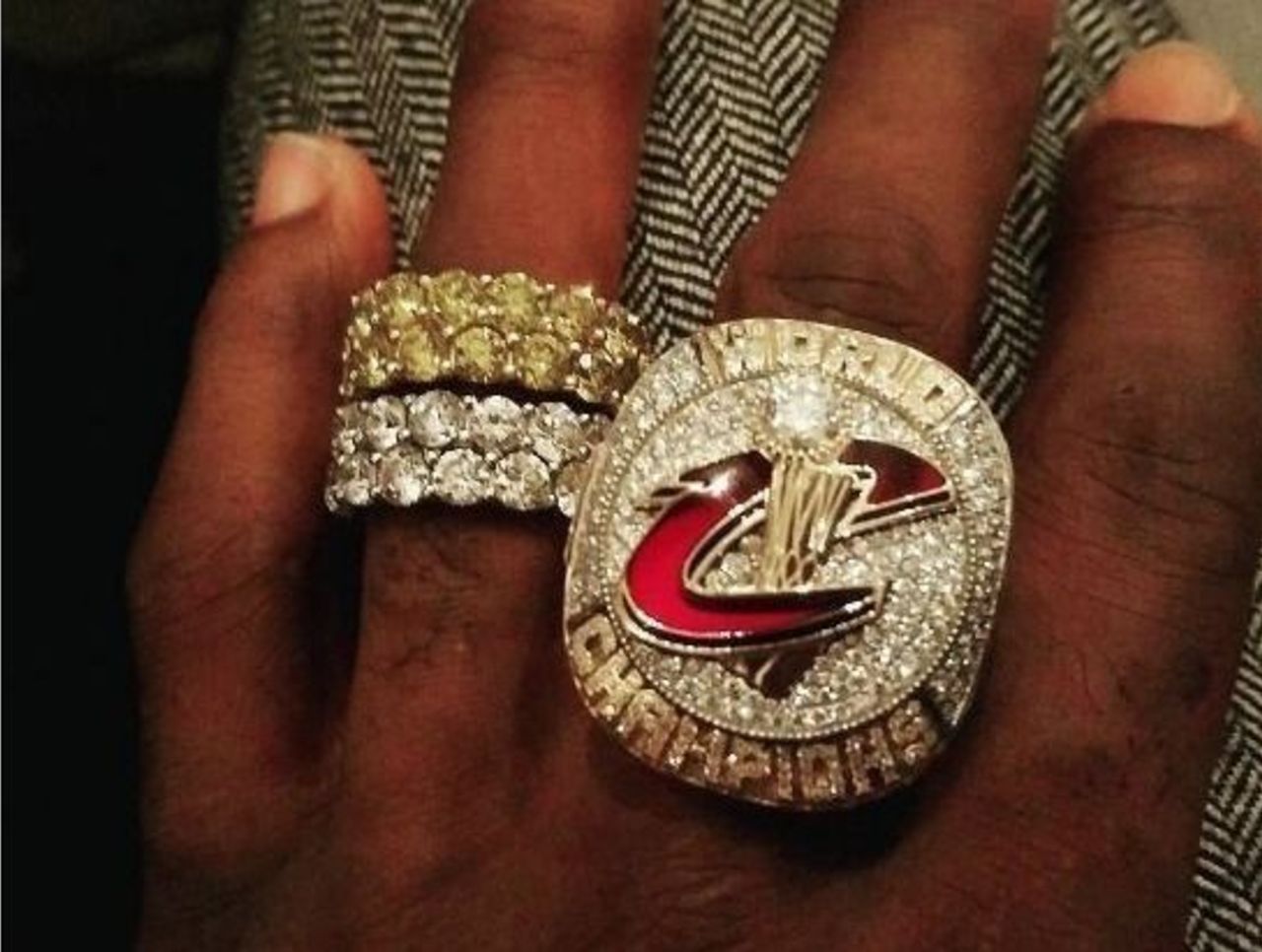
Whether acquiring assistance by signing a bought-out free agent or trading for a legitimate rotation player, LeBron's ownership - particularly during his years in Cleveland - has usually done what's necessary to give the King the weapons he needs to properly launch his assault on the NBA's postseason.
The Cavs made their big move for 2016-17 last week, picking up one of the league's best shooters to flank LeBron on the wings and provide depth, insurance, and extra offensive deadliness. But how does this year's deal compare to previous years' roster tuneups for The King? Let's revisit.
2008: Traded for Delonte West, Joe Smith, Wally Szczerbiak, and Ben Wallace
If this seems like a big deal, that's because it was. In the midst of a wild '08 trading season that saw such huge names as Shaquille O'Neal and Jason Kidd swap teams, the Cavs pulled off the largest trade of them all, a four-team, 11-player switcheroo that essentially reinvented James' entire supporting cast. This was a risky move for Cleveland, who essentially pulled the plug on the team that had made the Finals the year before - discarding a couple prolific starters in Larry Hughes and Drew Gooden and bringing in a pair of past-their-prime All-Stars in shooting guard Szczerbiak and center Wallace, who had fallen out of favor with their previous teams.
Did It Help? Certainly. Szczerbiak was erratic, but Wallace solidified the defense, and West - a near washout in Seattle - quickly proved one of LeBron's most trustworthy teammates on the perimeter. The 45-37 team came together in the playoffs, taking the eventual-champ Celtics to a hard-fought seven in the East semis.
2009: Signed Joe Smith as a free agent
The 2009 Cavs made their big swing the prior offseason, stealing point guard Mo Williams from the Milwaukee Bucks for virtually nothing, with "Mo Gotti" going on to average 18 a game and make the All-Star team. As Cleveland cruised to the East's best record, they saw no need to shake up the roster, and stood pat at the trade deadline. Their only move of consequence was to sign a bought-out Joe Smith - who the team had previously dealt to a rebuilding OKC in the three-team deal to net Williams.
Did It Help? Not enough. Smith had a productive postseason, but like most of the team, he all but disappeared in the conference finals against Orlando, with the Magic shocking the Cavs in a six-game upset.
2010: Traded for Antawn Jamison
Again, the Cavs made a huge deal in the summer, this time for Hall of Fame center Shaquille O'Neal, who was poised to serve as The King's bodyguard. But having been burned by inactivity the season before, Dan Gilbert still looked to upgrade the Cavs in-season, and dealt the team's 2010 first-rounder as well as the expiring contract of Zydrunas Ilgauskas to Washington for All-Star power forward Antawn Jamison, likely the closest LeBron came to playing with a true All-Star in his prime during his first Cleveland tenure.
Did It Help? Ultimately not. Jamison was solid in Cleveland, but not the difference-maker anyone hoped, and he was all but neutralized by the Boston Celtics - scoring in single digits three times - in the Cavs' staggering six-game loss to the Celtics in the conference semis.
2011: Signed Mike Bibby as a free agent
With the Heat having to sacrifice most of their assets and cap space to bring James (along with Chris Bosh) to Miami, their hands were a little tied when it came to upgrading the roster in the middle of the 2010-11 season. Still, they did manage to snag a proven vet in point guard Mike Bibby, who brought 80 games' worth of playoff experience with him to the Heat's starting lineup.
Did It Help? Not particularly. Bibby was acceptable in the regular season but abysmal in the playoffs, shooting just 28% from the field, and LeBron's squad was upset in six games, this time in the NBA Finals by the Dallas Mavericks.
2012: Signed Ronny Turiaf as a free agent
Miami upgraded in the summer of 2011 by signing defensive-minded analytics favorite Shane Battier for depth, and despite lacking an obvious starting center, the team decided to sit out the trade deadline of the lockout-shortened 2011-12 season. Ronny Turiaf, a veteran big and career backup, was the closest thing the team made to a noteworthy pickup.
Did It Help? Turiaf didn't, but not trading for a traditional center did. The Heat embraced NBA modernity in the finals by moving Bosh to the five and sliding Battier in at the four-spot, shooting the Oklahoma City Thunder off the floor in a five-game victory that brought The King his first ring.
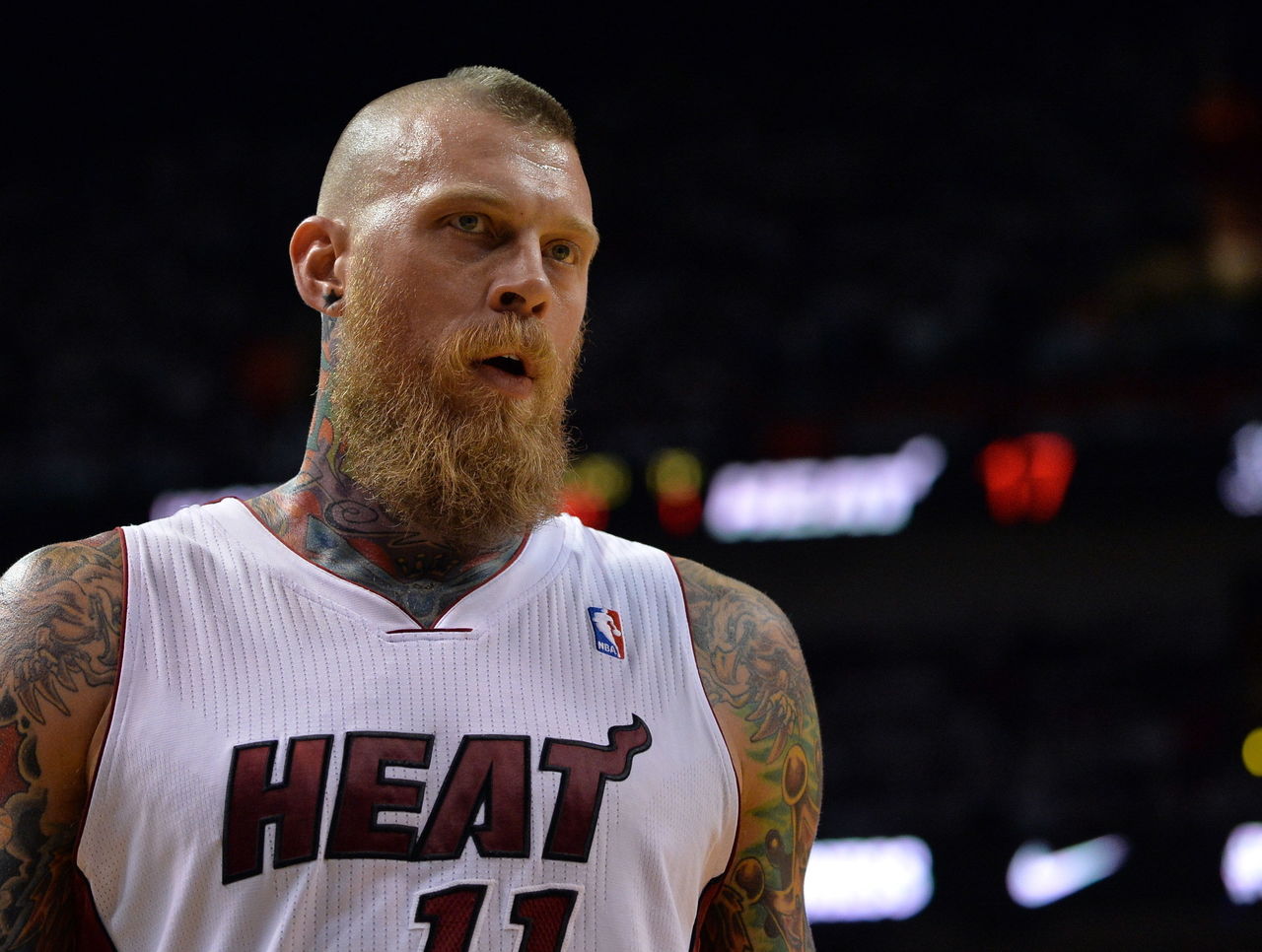
2013: Signed Chris "Birdman" Andersen as a free agent
The Heat made a huge add in the offseason by picking up shooters Ray Allen and Rashard Lewis in free agency, but remained undersized in the frontcourt and generally lacking in spark midway through the 2012-13 season. So they rolled the dice on the Birdman, a defensive-minded big who was seen as a character risk, having been both suspended from the league for substance abuse and investigated (though never charged) by authorities for "internet-related crimes against children."
Did It Help? Oh yeah. 26-12 at the time of Andersen's acquisition, Miami ended the season on a 40-4 tear which included a historic 27-game winning streak. Birdman was similarly instrumental in the Heat's hard-fought second straight championship victory, shooting an unthinkable 81% for the postseason, though he only received minimal PT in the classic seven-game finals against the Spurs.
2014: Traded for Toney Douglas
"Traded for" is something of a misnomer, as the Heat really got Toney Douglas as filler in a salary-dump trade that saw them deal center Joel Anthony to Boston along with some picks to save on their tax bill. Though Pat Riley insisted the move was done with "flexibility" in mind, the Heat were essentially closed for business for the rest of the year from there.
Did It Help? Unsurprisingly not. Douglas barely played in the playoffs, the Heat got trounced by San Antonio in the finals, and you have to wonder today if Riley regrets not being a little more aggressive in bolstering Miami's roster at this particular trade deadline.
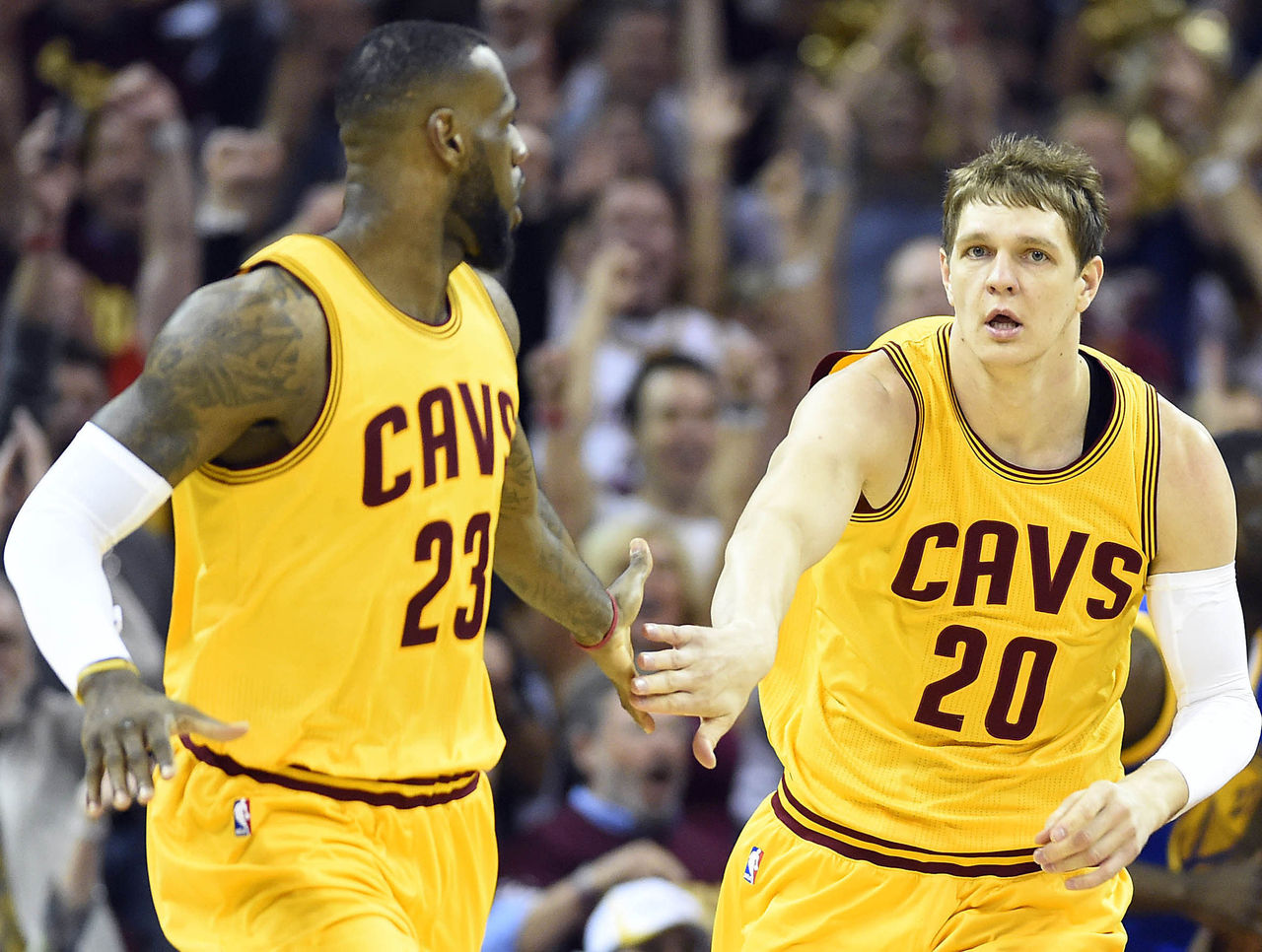
2015: Traded for Timofey Mozgov, J.R. Smith, and Iman Shumpert
The Cavs were hungry enough for help in their first season with LeBron back in tow that they made two separate mega-deals to find him support. First, they traded former top-five pick Dion Waiters to OKC in a three-team swap where the Knicks gifted Cleveland wing prospect Iman Shumpert in order to also riddle them with the long-term deal of the malcontent J.R. Smith. Then they sent two future first-rounders to Denver for big man Timofey Mozgov - seemingly a steep price for a center who'd never averaged double digits in points or rebounds.
Did It Help? Spectacularly. Mozgov proved a pick-and-roll monster with LeBron, the disgraced J.R. was revitalized in Cleveland, and the Cavaliers finished the season on a 34-9 tear, making it all the way to the finals before their injury-depleted squad was dispatched by the Warriors.
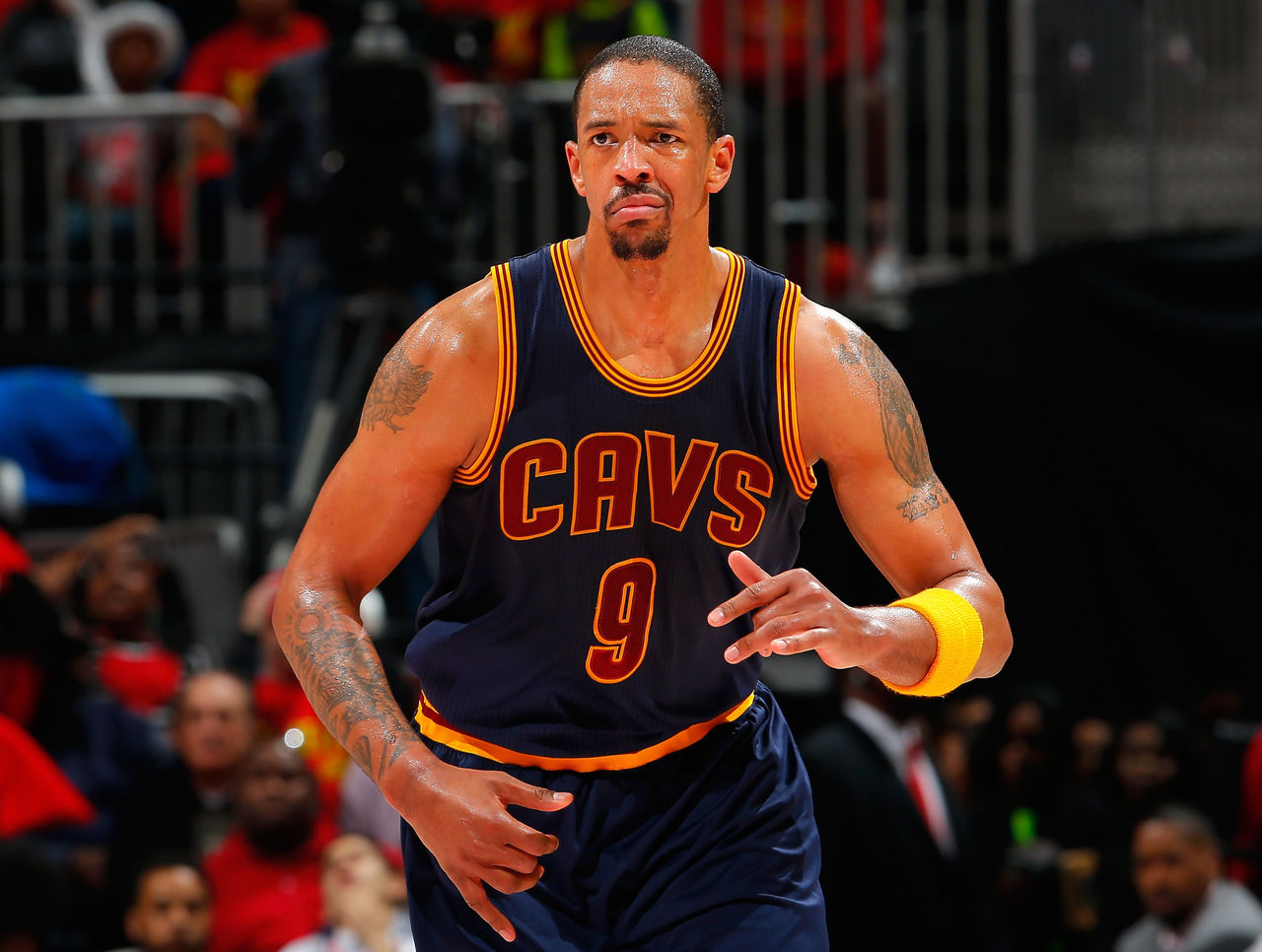
2016: Traded for Channing Frye
An under-the-radar move compared to the Mozgov and Smith deals, the Cavs further bolstered their font lines in 2016 by dealing a declining Anderson Varejao,
along with a future first-rounder, to land versatile, sweet-shooting big Channing Frye from the Orlando Magic.
Did It Help? Yep. Frye was good in the regular season, but absolute money in the playoffs, shooting 26-46 from range and helping the Cavs plow through the Eastern Conference. However, for matchup reasons, he sat for the majority of the Finals, including the entirety of the the team's legendary 3-1 comeback.
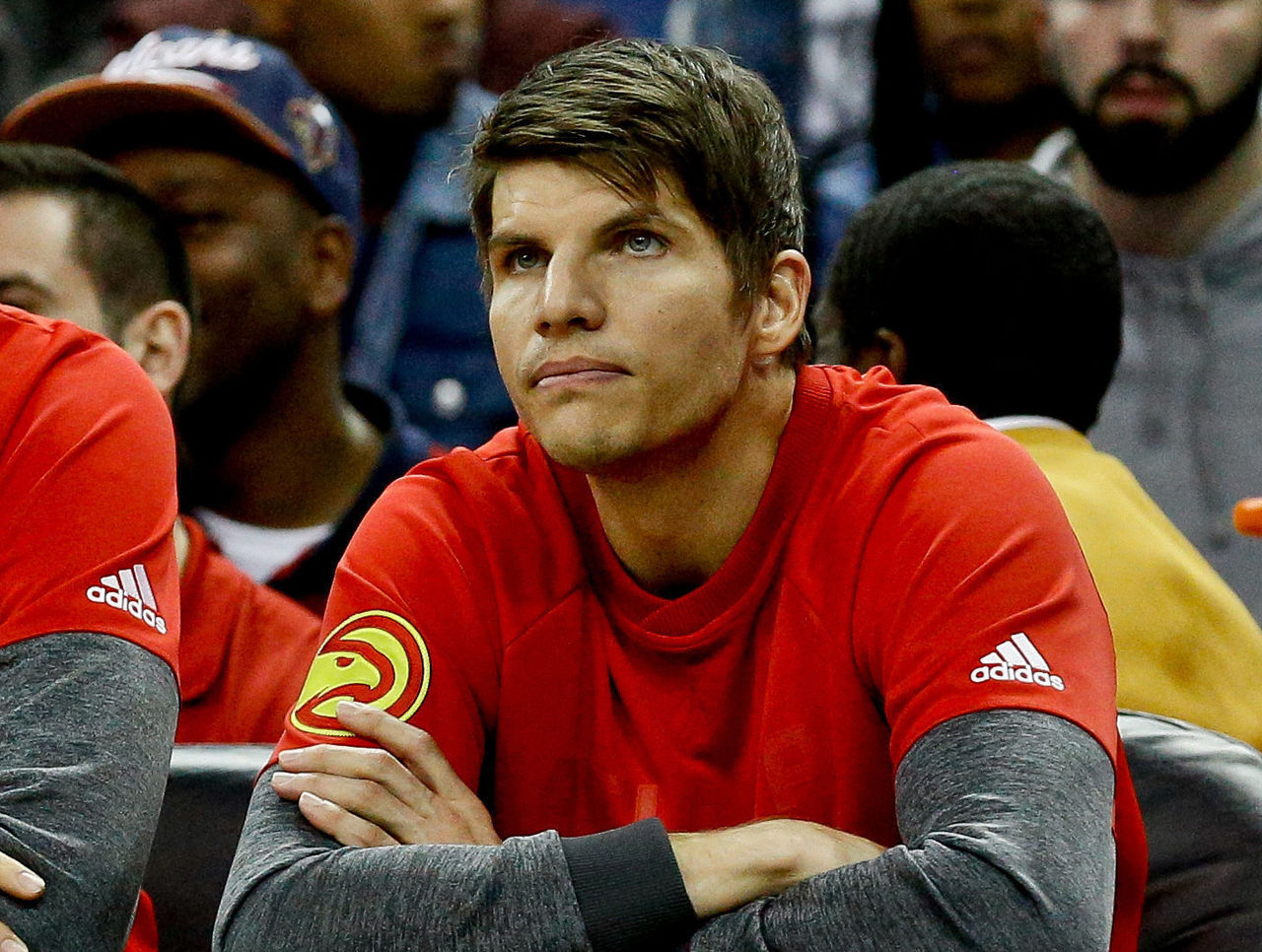
2017: Traded for Kyle Korver
You know the story here - with Smith hurt and Mike Dunleavy ineffective, the Cavs badly needed reinforcements on the wing, so last week, they dealt Dunleavy and a future first-rounder to the presumably retooling Hawks for historic sharpshooter Kyle Korver.
Did It Help? Not last night. Korver went 1-of-5 from the field in his Cleveland debut, scoring just two points as the Cavs fell 100-92 to the Jazz. He'll surely have better days in a Cavaliers uniform, but whether he'll be able to make a real difference in the King's pursuit of a repeat championship will be one of the bigger stories to monitor for the rest of the season.